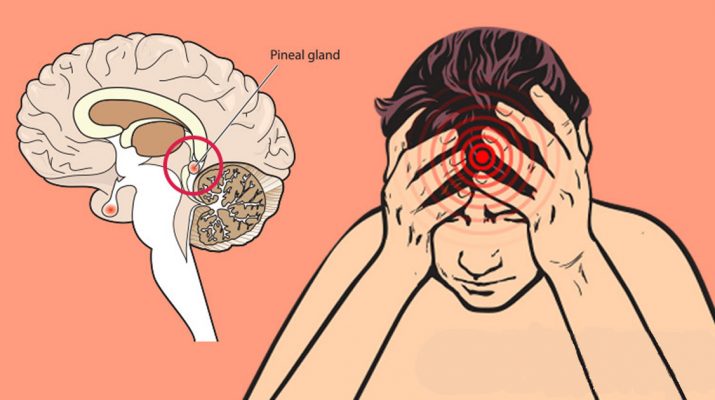If you’ve gone to the dentist recently, you may remember them asking you to rinse with fluoride. Afterwards, you’re asked to avoid eating for a half hour. Have you ever wondered why? Or even what “fluoride” is?
Fluoride is a toxin that naturally occurs in water. When used in dental offices, fluoride can combat some dental diseases. But we’re often told to avoid swallowing it as it can be harmful to the body in large doses. Of course, the amounts present in water are normally safe.
Increased amounts of fluoride have been added to our drinking water since the 1940s to combat tooth decay. By 2008, more than 72% of the United States received fluoridated water. As great as it may sound, research has found that fluoride has negative effects on your health. Fluoride toxicity has been linked to thyroid disease (1), brain damage (2), and notably, fluoride toxicity has negative effects on your pineal gland (3).
The Pineal Gland
Your pineal gland handles many of your body’s health functions. Everything from the health of your heart, your brain, and mood are affected by your pineal gland. One of its most important roles is with your body’s sleep cycle. Found in your brain, this gland produces the hormone melatonin which affects how long and how well you sleep (4). When fluoride is built-up in the pineal gland, it can disturb your sleep and significantly reduce your thyroid functions. As a result, fluoride build-up can impact your whole body’s health!
Fluoride Build-Up: What To Do
The most important step in removing fluoride build-up is watching your iodine levels. Iodine is one of the minerals essential to healthy thyroid functions – and is also one mineral our bodies do not make. Iodine actually helps flush out fluoride in our bodies. Many studies have found that people with healthy iodine levels were at less risk with fluoride (5). In other words, a healthy thyroid leads to a healthy pineal gland.
According to the World Health Organization, iodine deficiency is one of the main causes of brain damage (6). So there’s even more of a reason to keep up with your iodine consumption. The best sources of iodine are sea vegetables like seaweed and fish. One study linking thyroid health and breast cancer found that Japanese women who consumed seaweed daily were at less risk than their western counterparts (7). Thyroid experts recommend (9):
- 150 mcg per day of iodine daily for most adults
- 220 mcg per day for pregnant women
- 90 mcg per day for children, ages 1 to 8 years
- 120 mcg per day for children, ages 9 to 13 years
- 150 mcg per day for children, ages 14 to 18 years
Your body is an interconnected whole. When one part of it is unhealthy, you can expect the rest to follow.

